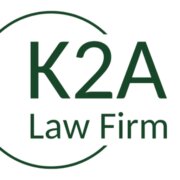Best Contract Lawyers in Thessaloniki
Share your needs with us, get contacted by law firms.
Free. Takes 2 min.
List of the best lawyers in Thessaloniki, Greece
About Contract Law in Thessaloniki, Greece:
Contract law in Thessaloniki, as in the rest of Greece, is governed by the Greek Civil Code. This field of law covers agreements made between two or more parties, who may be individuals, companies, or other entities. These contracts could relate to diverse matters including property sales, rent, employment, services, and more. The law specifies the provisions for valid contracts, the requirements for valid contract formation, and the remedies for breach of contract.
Why You May Need a Lawyer:
You may need a lawyer when drafting or reviewing a contract to ensure that it adheres to the stipulations of the Greek Civil Code and protects your interests effectively. You could also need legal assistance if a party to a contract breaches it or if a dispute arises in relation to a contract. A contract lawyer can help you understand your rights and remedies under the law, represent you in negotiations, and advocate for you in court, if necessary.
Local Laws Overview:
The key aspects of local contract laws in Thessaloniki include the necessity for parties to be of legal age and capacity, the need for the contract to have a lawful purpose, and the requirement of mutual agreement between contracting parties. In addition, the Greek Civil Code articulates the consequences of breach of contract, including the entitlement of the aggrieved party to damages. Some contract-related matters may also be regulated by European Union law, which Greece is subject to as a member state.
Frequently Asked Questions:
1. What makes a contract legally binding in Thessaloniki?
A contract needs to meet several conditions to be legally binding in Thessaloniki. All parties must be of legal age and must have the capacity to enter contracts. The contract must have a lawful objective, and there must be mutual agreement, often evidenced by exchange of something of value, known as ‘consideration’.
2. What happens if a contract is breached?
If a contract is breached, the party that suffered the breach can potentially sue for damages. The specific consequences often depend on the details of the contract and the nature of the breach.
3. Can a contract be altered after it is signed?
A contract can generally be altered after it is signed if all parties agree to the changes. However, the altered contract must still adhere to the stipulations of the Greek Civil Code.
4. Are verbal contracts enforceable?
While verbal contracts can be legally binding, proving their existence and terms can be difficult. Therefore, it is always advisable to have contracts in writing.
5. Can I dissolve a contract?
Whether a contract can be dissolved often depends on the terms of the contract itself. Some contracts may provide for termination under certain conditions, while others may not. It is advisable to consult with a lawyer if you wish to dissolve a contract.
Additional Resources:
The Greek Ministry of Justice is a valuable source of resources pertaining to contract law. The Thessaloniki Bar Association can also provide assistance with finding local contract lawyers. European Consumer Centre (ECC) Greece provides services related to consumer contracts, particularly in cross-border cases within the European Union.
Next Steps:
If you need legal assistance related to contract law in Thessaloniki, you should consider consulting with a local lawyer experienced in this field. This usually involves scheduling a consultation, preparing relevant documents and questions, and determining your needs and budget for legal assistance. Do bear in mind that while online resources can be informative, they should not replace professional legal advice tailored to your specific situation.
Lawzana helps you find the best lawyers and law firms in Thessaloniki through a curated and pre-screened list of qualified legal professionals. Our platform offers rankings and detailed profiles of attorneys and law firms, allowing you to compare based on practice areas, including Contract, experience, and client feedback.
Each profile includes a description of the firm's areas of practice, client reviews, team members and partners, year of establishment, spoken languages, office locations, contact information, social media presence, and any published articles or resources. Most firms on our platform speak English and are experienced in both local and international legal matters.
Get a quote from top-rated law firms in Thessaloniki, Greece — quickly, securely, and without unnecessary hassle.
Disclaimer:
The information provided on this page is for general informational purposes only and does not constitute legal advice. While we strive to ensure the accuracy and relevance of the content, legal information may change over time, and interpretations of the law can vary. You should always consult with a qualified legal professional for advice specific to your situation.
We disclaim all liability for actions taken or not taken based on the content of this page. If you believe any information is incorrect or outdated, please contact us, and we will review and update it where appropriate.

















